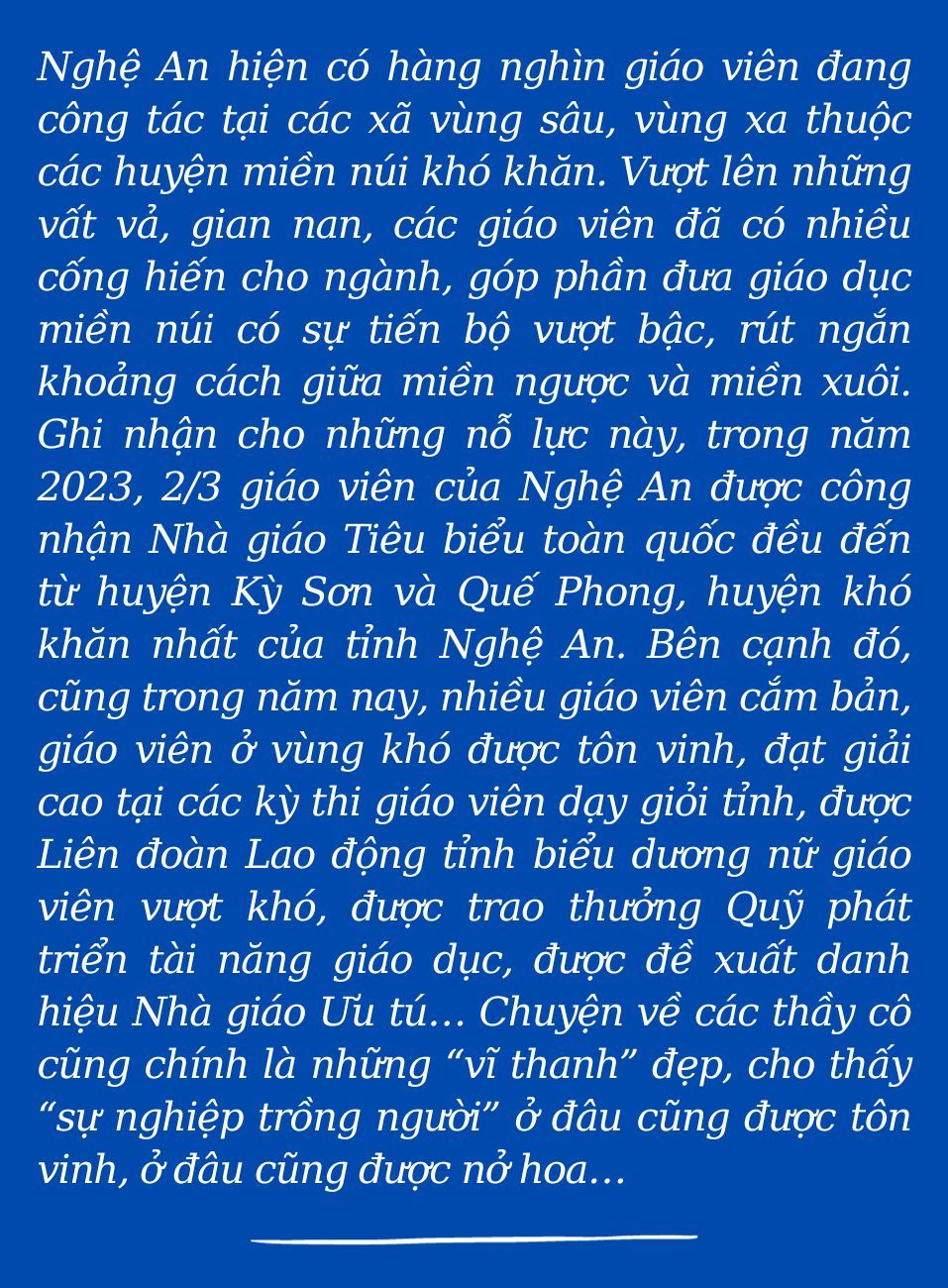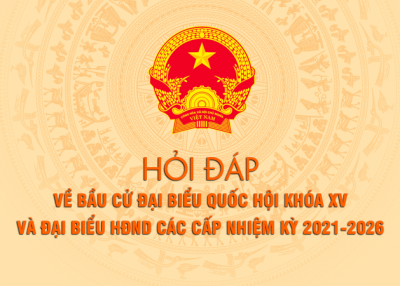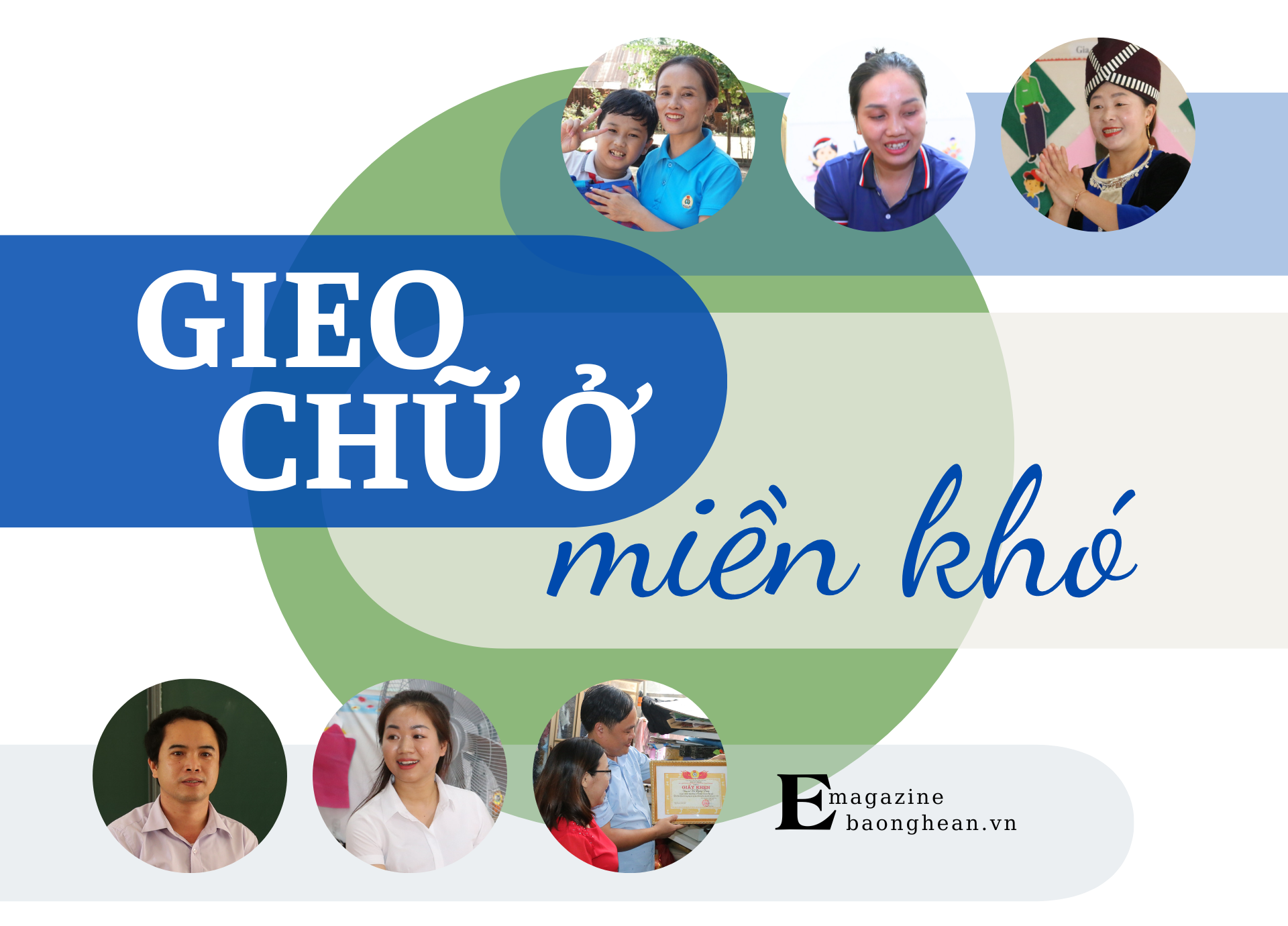
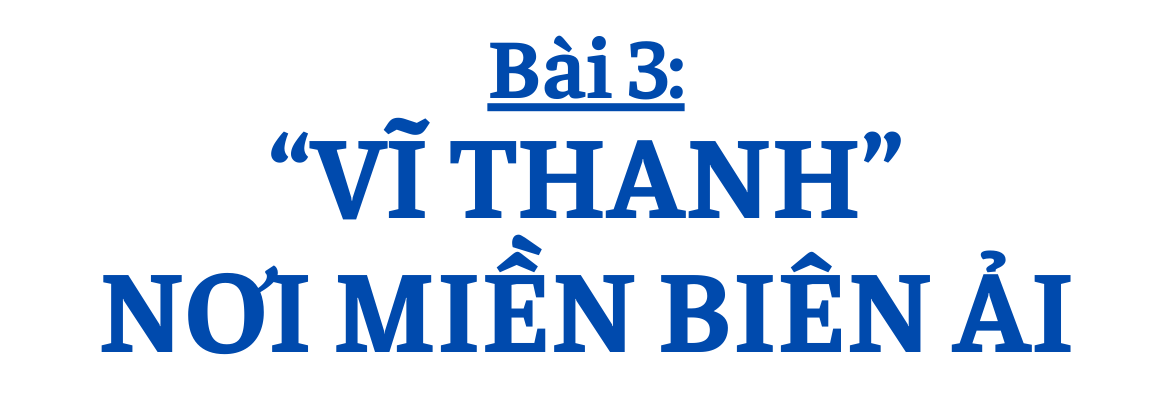
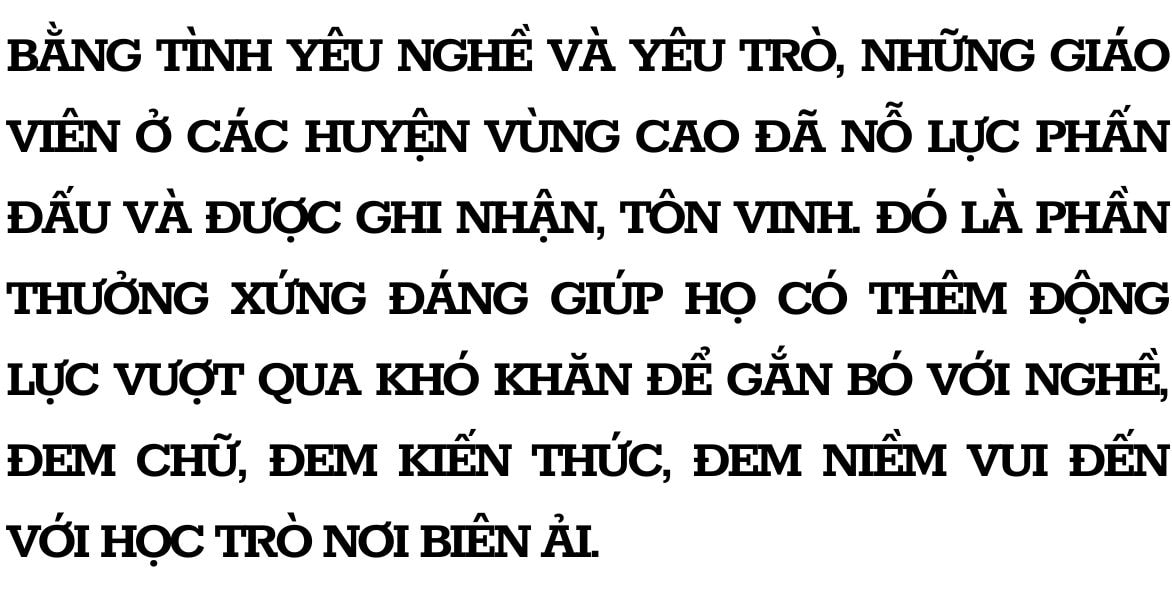
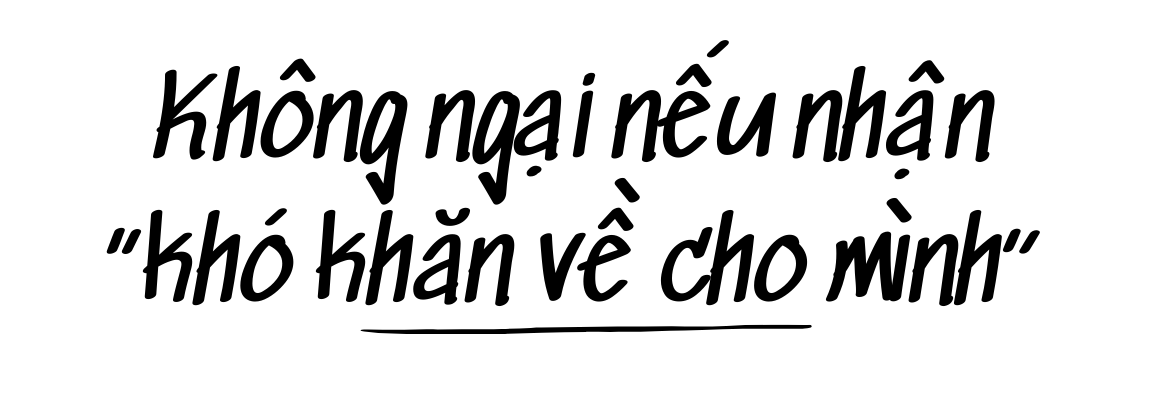
A day of teacher Lau Y Pay - a teacher at Tri Le Kindergarten (Que Phong) usually starts at 5am. After preparing meals for her children, she gets on her old motorbike and travels more than 25km of forest road to Huoi Moi village - one of the school's 9 satellite schools and is on the list of the most difficult and arduous schools. After more than 10 years working at this school, teacher Lau Y Pay said that she has lost 2 motorbikes and from a shy person, she has become a skilled driver, able to navigate all roads, whether it is raining, sunny or muddy. Over the past 10 years, teacher Lau Y Pay has had many opportunities to return to the central school, shortening the 50km round trip every day. But she said, if she left, it would be very difficult for another colleague to replace her. Meanwhile, the students and people here are familiar with her and she is also familiar with the language and customs of the local people.
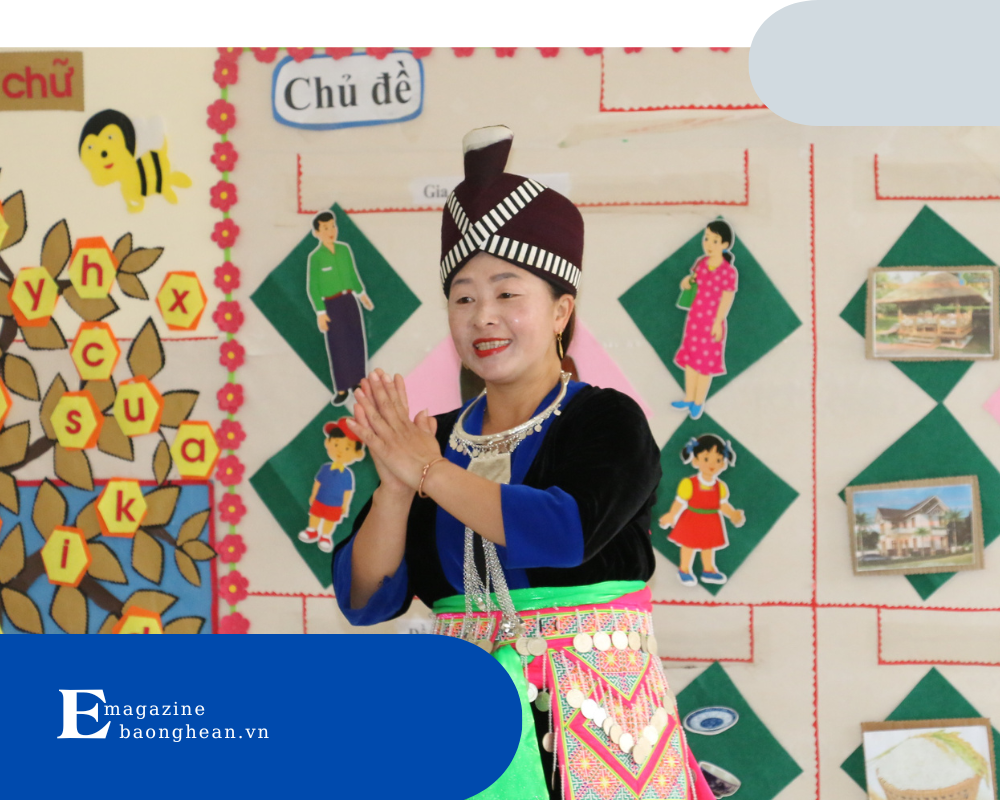
Teacher Lau Y Pay (born in 1986) is one of the few Mong teachers at Tri Le Kindergarten. Although she teaches in Que Phong, Ms. Pay was born and raised in Doc May commune - a particularly difficult border commune of Ky Son district. When she was young, her parents were farmers, raising 8 children, so their circumstances were extremely difficult. What makes her family different from many other families in the village is that although poor, her parents always wanted their children to study well and later all 8 children graduated from university and college. Growing up in that environment, Ms. Pay also said that she was a “stranger” in the village because Mong female students usually dropped out of school at the age of 14 or 15 to follow their husbands. Those who were later were 17 or 18 years old. At that time, only two people in the village went to town to study high school, including Ms. Y Pay. During the hard days of school, many people also encouraged me to drop out of school to get married. But I thought differently, if I didn’t go to school, if I didn’t have any knowledge, I would be like my parents and my friends in the village, stuck in poverty and hardship.
After graduating from grade 12, Ms. Pay enrolled in the College of Preschool Education because she loved singing, dancing, and children. After graduating, she was assigned to teach at Tri Le Kindergarten. Teacher Lau Y Pay confided that she had a connection with Tri Le because even though Ky Son and Que Phong were only a short distance apart. In the past, because of the mountains and rivers, every time she went from home to school, she had to travel almost a day, going back to Vinh and then taking a bus to Que Phong. Later, she chose Tri Le as her home, her second hometown because she met her other half here. Her husband also worked as a primary school teacher in the commune, so they had many conditions to support each other. For more than 10 years, she lived in Huoi Moi, and her husband was also the one who supported and helped her so that she could work with peace of mind.
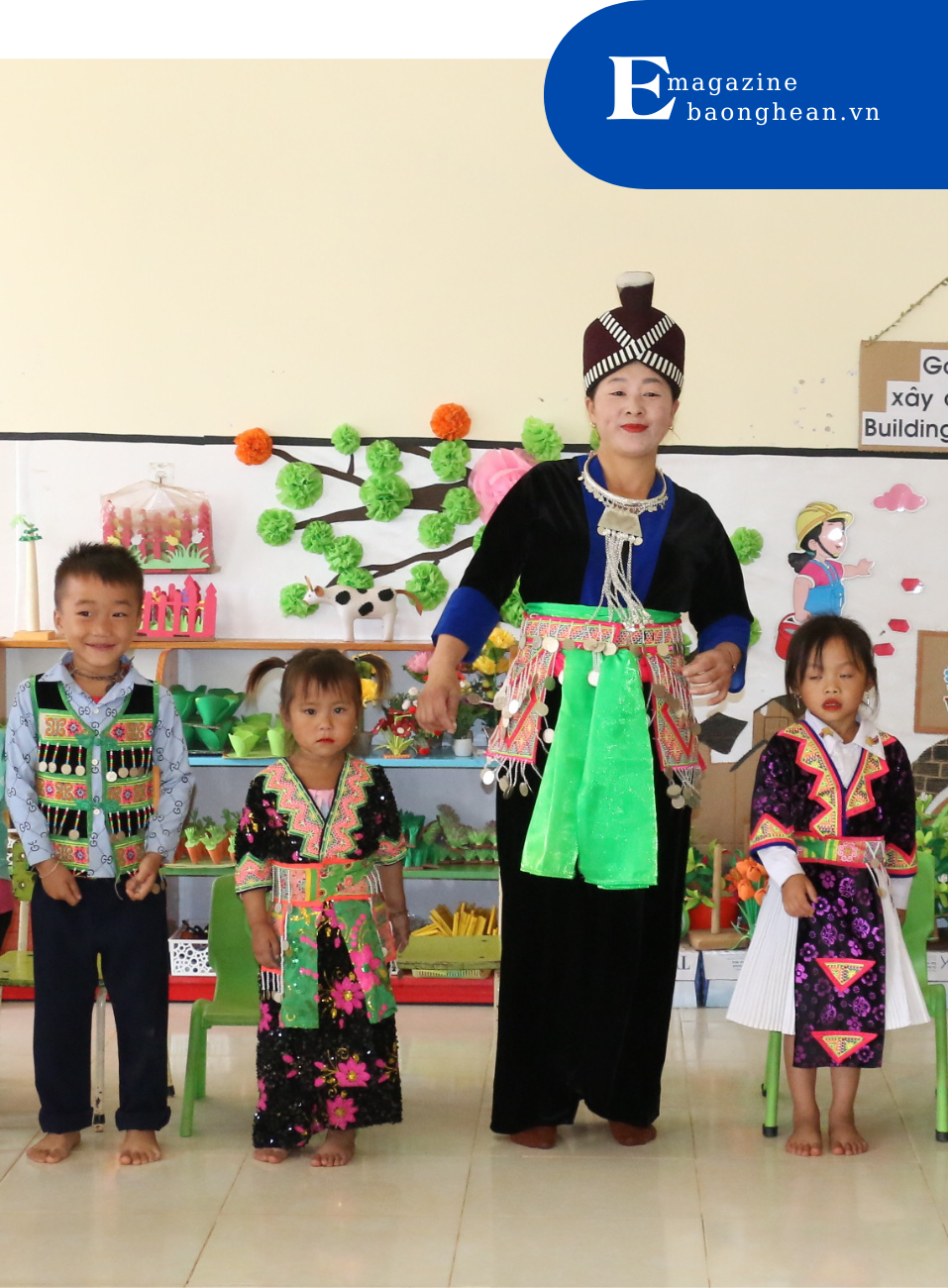
Talking about her work, Ms. Pay spoke very enthusiastically and devoted all her heart and soul to each job. Having been attached to Huoi Moi, Ms. Pay and her colleagues have also witnessed the changes in this land, especially the change in people's awareness about education: When I first came, the people in the village did not want their children to go to preschool because they believed that Mong children would grow up on their own when they were born. To mobilize students to go to school, we had to go to each house to talk and persuade parents to understand and listen. The most difficult thing was to persuade parents to let their children eat at school. In the past, it was difficult because the school was degraded and lacking, there was no place for children to sleep, so the propaganda was not convincing to the people. But in the past three years, our school has been rebuilt, the classrooms are spacious, there is a place for children to sleep at noon, so parents agree. Every morning, parents get up early to prepare rice and food for their children to take to school.
The dedication of teacher Pay to her students has been recognized by parents in Huoi Moi village. Sometimes, they even forget that teacher Pay is a person from Ky Son district and has become a daughter, a daughter-in-law, a relative in the family. Teacher Pay herself works with all her heart and responsibility and has never thought about achievements, so recently when she learned that she was honored by the school, the department and later the Department and the Ministry of Education and Training as a national outstanding female teacher, she was really happy and surprised. Even happier, because she did not think that a teacher living in a remote commune would receive such preferential care and that is the motivation for her to be more attached to her work and her homeland.

Up to now, teacher Phan Van Quang (41 years old, math teacher at Muong Xen town secondary school) has been attached to the career of educating people in the mountainous district of Ky Son for 19 years. Teacher Quang said: In those 19 years, I have been attached to 3 schools, in each school, each land is full of loving memories...
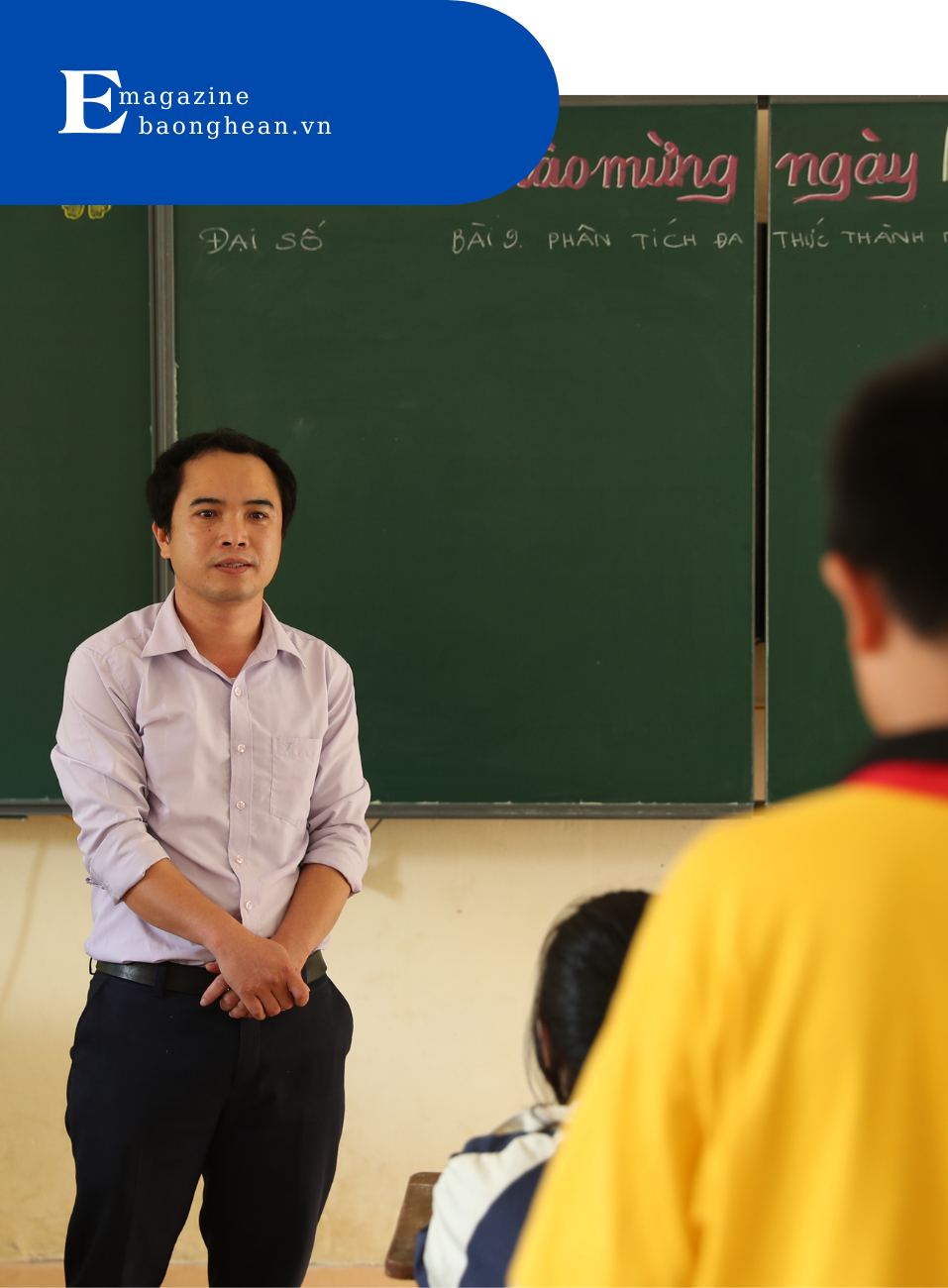
The first school Mr. Quang worked at was Na Ngoi Secondary School. In 2004, the road to Na Ngoi was a challenge even for the people in the mountainous areas. The distance from Khe Kien (Highway 7) to Na Ngoi commune was only about 30km, but it took 3 hours by motorbike to get there, crossing many steep passes and streams. The teacher's salary was only 600,000 VND/month, so the cost of hiring a taxi to take them to school was 450,000 VND/trip.
Na Ngoi is now a deserted area (no electricity, no phone signal, no market). The people here are Mong ethnic group with different customs, language, and lifestyle from Kinh ethnic group. They go to the fields from early morning and come back late at night, with very little interaction with the people around them. The life of the teachers here is confined to the small school campus.
Life is like that, work is even more difficult. The ability to absorb knowledge of students here is still limited when many of them listen and speak Vietnamese poorly. They are shy, afraid to talk to teachers. Parents do not care much about their children's education. Recalling the first days, teacher Phan Van Quang confessed that there was a time when he was really discouraged by the difficulties of life and in his teaching work. "But then, I received a lot of encouragement from my family, my colleagues. And I was determined to stay, determined to do my best in my teaching duties."
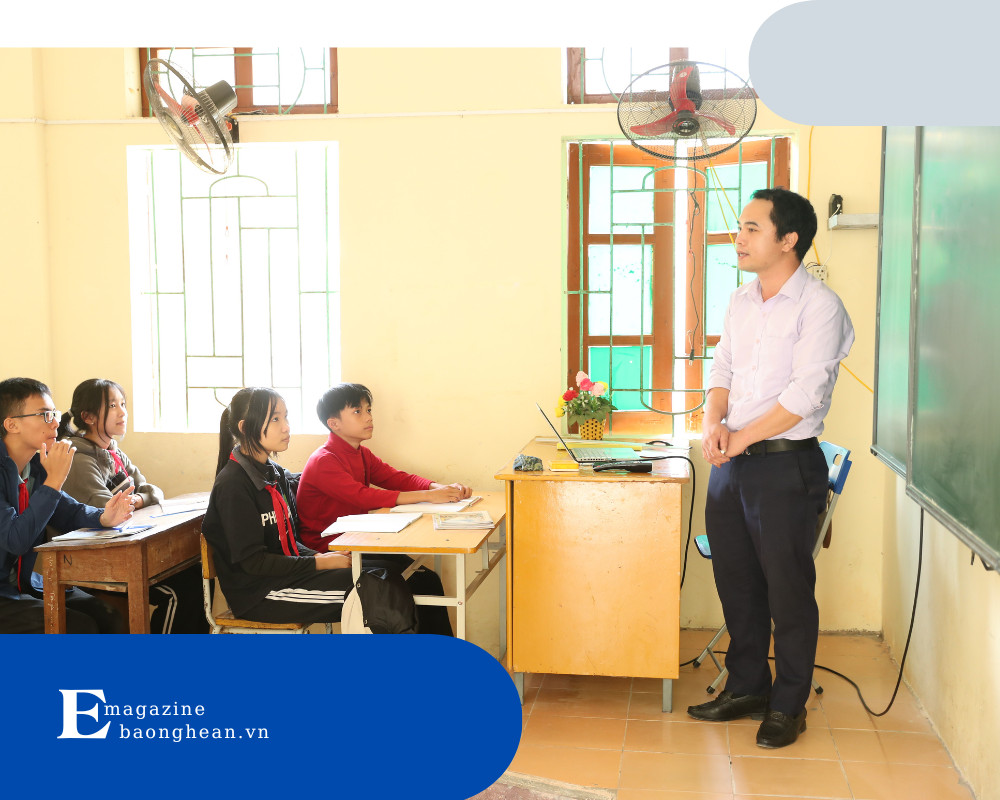
To have successful lessons, teacher Quang tried to learn Mong language; actively interacted, talked, and became closer to his students. He also constantly improved his expertise and learned from his colleagues. In 2006, he was sent by the school to compete for the best teacher in the district and won the top prize. This was also the premise for him to come to Ky Son District Boarding Ethnic Secondary School.
At this second school, teacher Phan Van Quang was exposed to a new environment and working conditions. Life in Muong Xen town is easier, but the teaching requirements are higher. Teacher Phan Van Quang shared: “I worked at Ky Son District Boarding Ethnic Secondary School from 2006 to 2014. In 2014, Ky Son District Boarding Ethnic Secondary School was divided into two schools, and I was assigned to teach at Muong Xen Town Secondary School until now... In recent years, every year I have had district-level initiatives and have been recognized twice for provincial-level initiatives. From 2014 to now, the school has assigned me the additional task of training excellent students at the district and provincial levels, and every year there are students who win prizes.” His initiatives and experiences are drawn from reality, so they are applicable and widespread. The “5-minute warm-up” experience is one of them: Depending on the student group, there are different ways of teaching. For example, to start the lesson, with 6th grade students, the teacher will tell a humorous story with educational content to gently arouse and lead the students’ interest in the lesson. With 7th, 8th, and 9th grade students, the teacher will spend the first 5 minutes of the lesson telling a story that connects the lesson with reality to stimulate the students’ curiosity – Mr. Quang added.
According to teacher Quang: Teaching methods are very important, but the spirit and attitude of the teacher are even more important. To improve the quality of teaching, teachers in general and teachers in mountainous areas in particular need to be truly close, loving, sympathetic and respectful to their students. Only then will the distance between teachers and students be shortened; teaching is no longer a matter of cramming. Respected students will love their school and class more and try to actively acquire knowledge from their teachers... In addition, teachers need to be enthusiastic, responsible and dedicated to their profession. For teachers in mountainous areas, if they only think about income and life, they will not be able to do their work and tasks well.
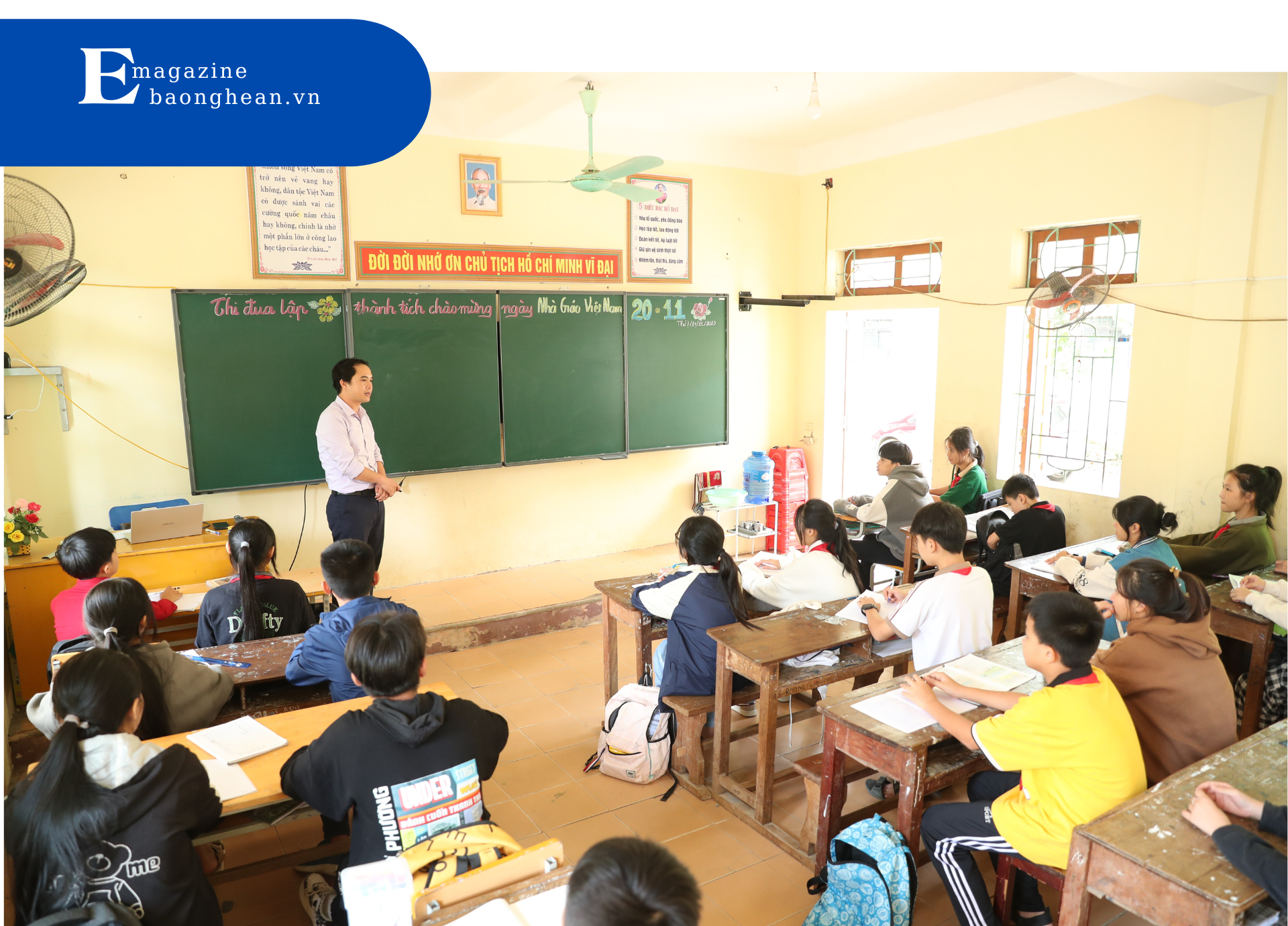
After 19 years of working in the highlands, teacher Phan Van Quang has received many noble titles, including twice being awarded the title of excellent teacher at the provincial level in 2009 and 2012; in 2013, receiving the Nghe An Provincial Education Talent Fund; in 2019, being honored by the Vietnam General Confederation of Labor as a typical outstanding union member; receiving the title of Provincial Emulation Fighter and a Certificate of Merit from the Chairman of the People's Committee of Nghe An province... Currently, teacher Phan Van Quang is being honored by the Education Department of Ky Son district, proposing the State to consider awarding the title of Meritorious Teacher.
Talking about his aspirations for the future, teacher Phan Van Quang shared: Life is increasingly progressing, education is also making new strides. In this 4.0 era, it requires everyone to have creative thinking. I myself am trying to guide my students to strengthen the connection of knowledge with life; promote applied mathematics to create useful scientific and technical innovations in practice.
